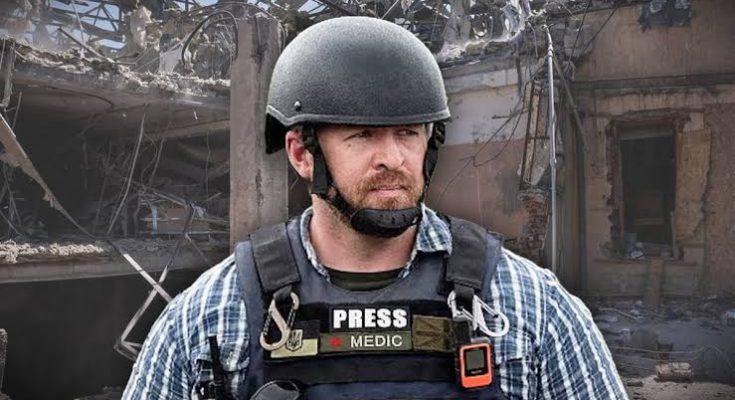A tragic reminder of the dangers faced by journalists in conflict zones emerged from Ukraine, as Ryan Evans, a Reuters safety adviser, was killed by a Russian missile strike on a hotel in Kramatorsk, Eastern Ukraine. The 38-year-old former British soldier was staying at the hotel with a six-member Reuters team when the missile struck on Saturday night.
Reuters confirmed Evans’ death in a statement released on Sunday, mourning the loss of a man who had been dedicated to safeguarding journalists in some of the world’s most dangerous environments. Evans had joined Reuters in 2022 and was responsible for advising its journalists on safety across global hotspots, including Ukraine, Israel, and the Paris Olympics.
The missile attack also left two other Reuters journalists injured, one of them seriously, who are now receiving treatment in the hospital. The three other team members were reported safe. “We are urgently seeking more information about the attack, including by working with the authorities in Kramatorsk, and we are supporting our colleagues and their families,” Reuters said in their statement.
Ukrainian President Volodymyr Zelenskyy confirmed that the hotel was struck by a Russian Iskander missile, a highly destructive ballistic missile capable of striking targets up to 500 kilometers away. In his evening address on Sunday, Zelenskyy condemned the attack as a deliberate and targeted strike, expressing his condolences to the victims’ families and friends. “An ordinary city hotel was destroyed by the Russian Iskander,” Zelenskyy said, emphasizing the calculated nature of the assault.
The missile struck at approximately 10:35 p.m., also causing significant damage to a neighboring building. Kramatorsk, the last major city under Ukrainian control in the eastern Donetsk region, is located about 20 kilometers from the front lines and has been a critical base for aid workers and international journalists covering the ongoing conflict.
Residents of the city were winding down for the night when the missile hit. Natalia, a 66-year-old local woman, recounted the terror she experienced when the attack occurred. “I was watching a film on my phone and then… there was such a noise and the glass started smashing,” she told Reuters, tears streaming down her face. Natalia had already been evacuated once after a similar incident but had returned to Kramatorsk. Now, she is reconsidering her decision. “It’s scary to go to bed,” she said, her voice trembling.
Evans’ death underscores the peril that journalists face in war-torn regions, where the threat of violence looms large even in seemingly safe spaces. Reuters has vowed to continue supporting Evans’ family and the injured journalists, as they process this devastating loss.




